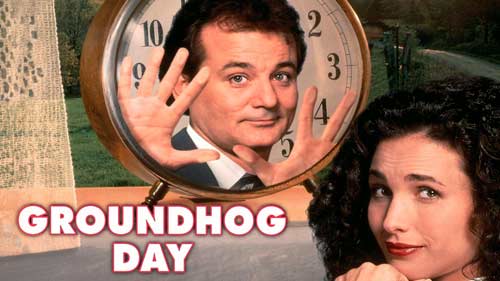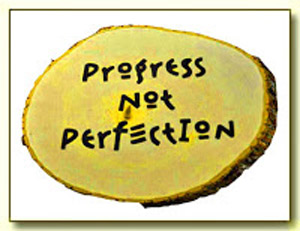- Home
- Service & Fees
- Begin Therapy
- My Credentials
- Counseling Philosophy
- Contact Me
- Carl's You Tube Videos
- Online Therapy Benefits & Risks
- Confidentiality
- Codependency 1
- Codependency 2
- 5 Steps to Becoming a Recovering Codependent
- Anxiety/Panic
- Depression
- Johari Window
- Grief & Loss
- 12 Grief Suggestions
- Healthy Conflict
- Assertiveness
- Boundaries
- Anger Management
- Mindfulness
- Mindfulness Online Therapy for Anxiety and Depression
- Meditation: More than You Think
- Reparenting Wounded Child
- Control/Responsibility
- Coping with Flashbacks
- Taming the Mind
- Stress Management
- Mistaken Beliefs
- Spam of the Mind
- Unhelpful Thinking
- Self-Care
- Childhood Trauma
- Shattered: A poem....
- Shame & Guilt
- Fear of Intimacy
- Dual Diagnosis
- Addiction
- On Being a Therapist
- The Child Within
- Happiness Habits
- EQ vs. IQ
- Helpful Books
- Helpful Movies
- Serenity Prayer: Recipe for Good Mental Health
- Basic Human Rights
- Empathy
- Helpful Quotations
- in crisis
- custom404
- googleverification
- Paypalchat
- paypalemailcounseling
- PayPalPhone
- Blame-o-holics
- Maturity/immaturity
- Sitemap&Table of Contents
- Old Fees
5 Steps to Becoming a Recovering Codependent
Recovery empowers codependents to take charge of their lives by learning to value their feelings, opinions, and needs. As self-esteem improves, codependents find the courage to challenge mistaken childhood beliefs, which then frees them to learn healthy relationship skills through practice. A common fear among codependents in early recovery is that they will become selfish, which is unfounded, because recovering codependents remain more caring than most. Recovery simply extends the abundant compassion of codependents to themselves, which is exemplified in my slogan: "I will no longer be a people pleaser. Instead, I will be a people respecter, including respecting my own needs and feelings."
Changing dysfunctional childhood patterns of
beliefs and behaviors takes time, practice, and mindfulness.The challenge
of making such profound changes is superbly illustrated in the movie Groundhog Day
. Self-centered
Phil, played by amazing Bill Murray, seeks to win the love of Rita, who
despises his arrogant ways. However, when Phil magically finds himself
waking up repeatedly to the same Groundhog Day - more than 40 times! -
he is able to replay his interactions with Rita over and over until he
finally gets it right and learns how to love. Groundhog Day
brings to life
on the silver screen the great poet Robert Frost's profound observation: "Our very life depends on everything recurring 'til we answer from
within."
In other words,
thank God we are given many opportunities to learn the lessons we need
to learn to live a more fulfilling life.
challenge
of making such profound changes is superbly illustrated in the movie Groundhog Day
. Self-centered
Phil, played by amazing Bill Murray, seeks to win the love of Rita, who
despises his arrogant ways. However, when Phil magically finds himself
waking up repeatedly to the same Groundhog Day - more than 40 times! -
he is able to replay his interactions with Rita over and over until he
finally gets it right and learns how to love. Groundhog Day
brings to life
on the silver screen the great poet Robert Frost's profound observation: "Our very life depends on everything recurring 'til we answer from
within."
In other words,
thank God we are given many opportunities to learn the lessons we need
to learn to live a more fulfilling life.
So, let's talk about the five steps to becoming a recovering codependent.
Step #1: " I must overcome denial that keeps me trapped in doing the same unhelpful, mindless behaviors over and over without ever asking myself, 'Why am I doing these things?" A basic truth of emotional healing is that you cannot fix a problem that you deny. In Groundhog Day , after repeated rejections by Rita, Phil gradually overcomes his denial by accepting that his arrogance and grandiosity are pushing her away. For codependents, overcoming denial means accepting that their relationships are not working , so they must find a better way. They must also accept that they DO have needs and feelings that DO matter, which then opens the door for them to learn how to negotiate healthy relationships that actually meet their needs.
Step #2: "I must educate myself about codependency and what makes healthy relationships healthy. I must understand the skills and beliefs that produce healthy relationships so I have a vision of where I want to go." Phil didn't seek therapy, read self-help books, or attend 12-Step meetings to educate himself about healthy relationships. Instead, he schemed various strategies to win Rita's love, including blatant manipulation, people pleasing, and trying to be her ideal man, but each time she eventually saw through him and slapped him in the face. Finally, Phil became so hopeless that he drove himself off a cliff, only to wake up to the same Groundhog Day again. So, to avoid becoming discouraged by trying to make changes without a clear vision of where you want to go, I recommend that you educate yourself about codependency and healthy relationships as part of your preparation for change.
Step #3: "I must become familiar with my codependent patterns by observing them until I can see them clearly, and, thus, am ready to take steps toward healthy changes in my relationships." People often try to make changes without understanding the problem, so their efforts may be more knee-jerk than intentional, as happened dozens of times with Phil. Mindfulness means intentionally and nonjudgmentally being open to the present moment with an attitude of curiosity. Thus, I recommend that you frequently and mindfully observe yourself in relationships and then jot down notes about what you observe– your thoughts, your bodily sensations, and your feelings – which will then allow you to "see" the truth of what you've been doing,including how your programmed thoughts and emotions born of past pain have interacted to keep you stuck in dysfunction.This "seeing" and "knowing" will give you a buffer from the past programming so you can choose to do what we are designed to do: You can begin taking care of yourself, which is the essence of recovery from codependency.
Step #4: "I must feel the fear and shame and do it anyway - the fear thatif I take care of myself in a relationship, then I will be rejected and abandoned, and the shame that if I say 'no' or ask for what I want, then I'm being selfish." Overcoming denial, educating yourself about codependency and healthy relationships, and mindfully observing your codependent patterns are major steps forward for the recovering codependent. However, often the most difficult step is "feeling the fear and shame and doing it anyway." Insight is important, but if you don't change what you do in the moment, then nothing changes. So, there will come those moments as a recovering codependent when you first choose to break a rule that you believed helped you survive as a child, which no doubt will trigger fear and shame. In those moments, your panicking Wounded Child will scream: "Are you crazy? You can't do that because no one will ever love you!" But each time you give into the fear and shame, you reinforce the old rule in your lower brain that says taking care of yourself is wrong. However, each time you feel the fear and shame and do it anyway, you begin building a new pathway in your brain of safety for saying 'no' or asking for what you want. This is how you reprogram your brain and update it to the present reality so you feel safe as an empowered adult to take care of yourself in relationships.
Step #5:
"Progress Not Perfection,"
which is my favorite Al-Anon slogan. Changing mindless patterns of
behavior is difficult. Therefore, you must be patient and kind with
yourself and never expect perfection. Recovery is always a two-step
forward and one-step backward process. Your goal is to be your own best
cheerleader as you climb a steep learning curve in trying to be healthy
in relationships. When you experience success, give yourself a pat on
the back; and when a new behavior didn't work out as planned, learn from
it rather than beating up on yourself. And don't be in a hurry. What
matters the most is that you've found the path to recovery, which has
its own pace. You simply can not push the river. So, keep working your
program, which might include attending Codependents Anonymous or
Al-Anon; reading books on
self-care, codependency, and healthy relationships
; engaging with a
therapist or sponsor; and using mindful observation as much as you can,
and then trust the process
because it will take you where you want to go. As they say in the
12-Step programs: "Work the
program, and the program will work for you!"
Therefore, you must be patient and kind with
yourself and never expect perfection. Recovery is always a two-step
forward and one-step backward process. Your goal is to be your own best
cheerleader as you climb a steep learning curve in trying to be healthy
in relationships. When you experience success, give yourself a pat on
the back; and when a new behavior didn't work out as planned, learn from
it rather than beating up on yourself. And don't be in a hurry. What
matters the most is that you've found the path to recovery, which has
its own pace. You simply can not push the river. So, keep working your
program, which might include attending Codependents Anonymous or
Al-Anon; reading books on
self-care, codependency, and healthy relationships
; engaging with a
therapist or sponsor; and using mindful observation as much as you can,
and then trust the process
because it will take you where you want to go. As they say in the
12-Step programs: "Work the
program, and the program will work for you!"
From the depths of his despair, Phil made a profound change. Instead of trying to make Rita love him, he decided to just get to know himself, and lo and behold, Rita liked what she saw and fell in love. The shame of codependents tells them they are unlovable, but when codependents enter recovery, they discover that they are worthy of being loved.
Click below to watch Carl's 9 -minute YouTube video of this article.
To view all of Carl's YouTube videos on codependency, click here.
I If you are ready to begin the road to recovery, or if you're already on it and need extra support, then click on the picture below to request online therapy.
To follow my posts on Facebook , please click the Like and/or Share buttons below:
Click on the photo below to request online therapy . .

for a new beginning...
Home / My Credentials / Counseling Philosophy / Online Therapy Risks & Benefits / Services & Fees / Confidentiality / Begin Therapy / In Crisis Now? / Contact Me / Carl's YouTube Videos / Sitemap
Copyright 2005-2021 Serenity Online Therapy
All Text and many photos by Carl Benedict
